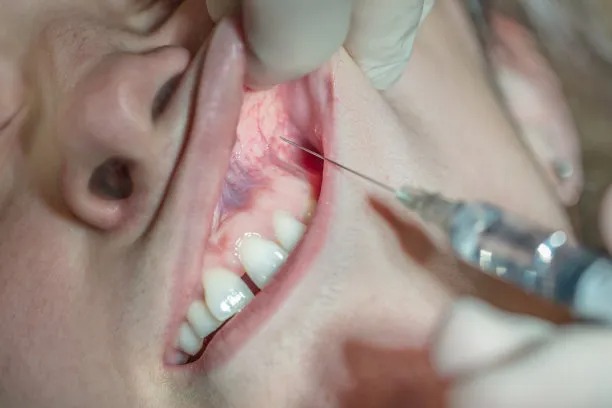Summary: Periodontal disease is a common yet often underestimated condition that can significantly affect overall health. This article explores the multifaceted impact of periodontal disease, detailing its links to systemic health issues, the psychosocial effects it may impose, and the importance of preventive measures. Through an examination of these aspects, the article aims to provide a comprehensive understanding of how oral health is intertwined with overall wellness. By promoting effective preventive strategies, individuals can safeguard not just their oral health but also their general well-being, paving the way for a healthier life.
1. Understanding Periodontal Disease and Its Causes

Periodontal disease, often referred to as gum disease, is a chronic inflammatory condition that affects the supporting structures of the teeth. It is primarily caused by the accumulation of plaque, a sticky film of bacteria that forms on the teeth. If not removed with adequate oral hygiene, plaque hardens into tartar, leading to inflammation and infection of the gums.
There are two main stages of periodontal disease: gingivitis and periodontitis. Gingivitis is the early stage characterized by red, swollen gums that may bleed during brushing. If left untreated, gingivitis can progress to periodontitis, where the inflammation extends deeper, potentially leading to tooth loss and other serious health complications.
Risk factors for developing periodontal disease include poor oral hygiene, smoking, certain systemic diseases like diabetes, hormonal changes, and genetics. Understanding these causes is essential for implementing effective preventive measures and improving overall health.
2. Periodontal Disease and Systemic Health Connections
The impact of periodontal disease extends beyond oral health. Research has established a clear link between periodontal disease and various serious systemic conditions. One notable association is with cardiovascular disease; inflammation from gum disease could contribute to the development of atherosclerosis and heart problems.
Moreover, individuals with diabetes are at a higher risk for developing periodontal disease. High blood sugar can hinder the body’s ability to fight infections, which exacerbates gum disease. Conversely, periodontal disease can complicate diabetes management, creating a vicious cycle that poses serious health risks.
Other systemic conditions impacted by periodontal disease include respiratory diseases, rheumatoid arthritis, and adverse pregnancy outcomes. The inflammatory mediators produced during periodontal infections can enter the bloodstream and influence health far beyond the mouth, emphasizing the need for awareness.
3. Psychosocial Implications of Oral Health
The psychosocial effects of periodontal disease are significant and often overlooked. Poor oral health can lead to self-consciousness, low self-esteem, and social withdrawal, significantly impacting an individuals quality of life. Individuals suffering from periodontal disease may experience discomfort and pain, which can further affect daily activities and social interactions.
Additionally, the visible effects of gum disease, such as receding gums or tooth loss, can contribute to negative perceptions from others. This can perpetuate feelings of embarrassment, leading to avoidance of social situations, impacting relationships and overall mental health.
Recognizing and addressing these psychosocial implications is crucial for comprehensive treatment plans that prioritize not only physical health but also emotional well-being. Support from dental professionals and access to counseling can help individuals cope with these challenging aspects of their condition.
4. Preventive Measures for Healthier Living
Preventing periodontal disease is achievable through a combination of good oral hygiene practices, regular dental check-ups, and lifestyle modifications. Maintaining a consistent brushing and flossing routine can significantly reduce plaque buildup, thus minimizing the risk of gum disease.
Regular visits to the dentist for professional cleanings and oral examinations are vital. Dental professionals can identify early signs of periodontal disease and intervene before it progresses to more severe stages. Early detection is key in preventing complex treatments and potential systemic health issues.
Lifestyle modifications, such as quitting smoking and managing chronic diseases like diabetes, also play an essential role in prevention. A balanced diet rich in vitamins and minerals supports oral health and overall wellness, making it vital to be conscientious about the food and beverages consumed.
Summary:
In conclusion, understanding the impact of periodontal disease on overall health is crucial as it underscores the interconnectedness of oral and systemic health. By recognizing the causes, systemic connections, and psychosocial implications of gum diseases, individuals can better appreciate the importance of preventive measures. Prioritizing oral health through proper hygiene, regular dental visits, and lifestyle changes is a proactive approach to fostering overall well-being and leading a healthier life.
This article is compiled by Vickong Dental and the content is for reference only.
Vickong Dental
Vickong Dental is a large medical group established in Hong Kong in 2008 by professors from well-known medical universities in Guangdong and Hong Kong, as well as medical doctors from key national '985' universities (including Master's supervisors and senior professors). The chain of branches brings together expert dentists with PhDs and Master's degrees from Hong Kong and Mainland China, committed to providing high-quality dental treatment.
"Vickong Dental Practices the University Motto of 'Healing and Serving Society,' with a Stable Operation for Sixteen Years. It Has Been honored with Hong Kong Enterprise Leaders's Choice,' and is a Global Trusted Implant Center for the Nobel Implant System. Recommended by Hong Kong Metro Broadcast and Guangdong Television, it Serves Customers from Over Thirty Countries and Regions, Gaining the Trust and Favor of Citizens from the Guangdong-Hong Kong-Macau Greater Bay Area and Surrounding Cities.

Thousands of customers' unanimous praise
The most recognized and highly recommended dental service by customers in the Guangdong-Hong Kong-Macau Greater Bay Area
We Ensure You Receive Detailed Care and Attention Here
Hong Kong standards, Shenzhen prices, Your Trusted English-speaking dentists

Vickong Dental Medical-Grade Instrument Disinfection Process
Vickong Dental Medical-Grade Instrument Disinfection Process

Vickong Dental Chain: A Warm and Comfortable Environment for Treatment






Appointment Hours

Q&A
Why choose Vickong Dental?
Vickong Dental practices the university motto 「Medicine to Benefit Society」, with each branch bringing together highly qualified dentists with doctoral and master’s degrees from Hong Kong and the Mainland, and has maintained seventeen years of steady operation。Recipient of 「2024 Hong Kong Enterprise Leaders Brand」, 「2025 Hong Kong Enterprise Leaders Brand」, a Nobel Biocare Global Trusted Implant Center, and a brand recommended by Metro Radio Hong Kong and Guangdong TV。
To date, we have served customers from more than thirty countries and regions,earning exceptionally high word-of-mouth recognition and trusted recommendations from residents across the Guangdong-Hong Kong-Macao Greater Bay Area and surrounding cities
We have eight major branches in Zhuhai、Shenzhen,and a consultation and service assurance center in Hong Kong,so you can book a free consultation at any time for any questions,which is very reassuring.
If I do not accept the quotation after the CT scan, will I be charged??
No! As long as the actual treatment has not started, you will not be charged any fees.
Will there be any additional charges during the treatment process?
No, there won’t be any additional charges. Before treatment begins, we will clearly explain the treatment plan and its corresponding fees. Only after the patient agrees and signs the consent form will we proceed with the dental service.
Can I pay in Hong Kong dollars?
Yes. Vickong Dental accepts payment in Hong Kong dollars. The amount will be converted based on the exchange rate of the day, and the applicable rate will be clearly communicated to you in advance.
Can I reschedule my appointment at any time?
Yes. Please contact us via **WeChat** or **WhatsApp** as early as possible, providing your original appointment time and details, along with your preferred new date and time slot for rescheduling.













